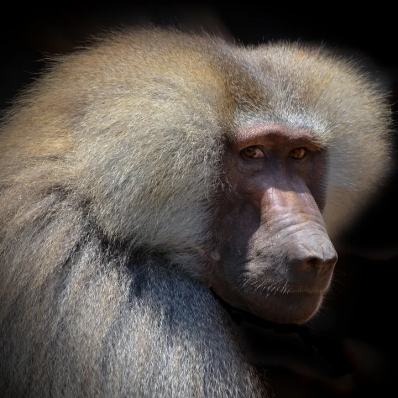Précising: hamadryas baboon
The Grammar Bit!
Read the two paragraphs opposite. Notice how the second paragraph is a shortened version of the first paragraph. This is called a précis.
In this shortened version (bold), notice how the précis keeps the main points and order of the longer text, but reduces it to approximately one third of its original length. The word précis comes from the French, meaning precise.
Précising is different to note-making – a skill that you will be very familiar with now that you are in Year 6. Discuss with your talk partner what you think the main differences are and when précising might be used instead of note-making.
With a partner, discuss how the précis opposite demonstrates the following aspects of précis writing:
- It is much shorter – ideally about 1/3 the length of the original text.
- It removes all unnecessary information and words.
- It communicates the main ideas of the original text.
- It shows the author has a good understanding of the original text.
- It is written in complete sentences, which are grammatically accurate.
Scintillating Sentences
Original Text
Hamadryas baboons are terrestrial mammals that are found in the open savannah, woodlands and hills of East Africa. They are the most northerly dwelling species of the world’s five different types of baboon. Although they are omnivorous and will eat small insects, fish and birds, they are primarily herbivores (plant-eaters), feeding on grass seeds, roots, berries, flowers, leaves and the pods of acacia trees. As foragers, they do not follow a set meal-time routine. They sleep high up in the cliffs for safety (where they are less likely to fall prey to leopards and hyenas) and descend to the flat ground in the daytime to drink and eat. (108 words)
Précised Version
Hamadryas baboons live in a variety of habitats in East Africa. They can eat meat but are mostly herbivorous. For their own safety, they sleep on the cliffs, only coming down to drink and feed. (35 words)

Did you know?
Hamadryas baboons are also called sacred baboons because they were very special to the Ancient Egyptian god, Thoth.

 Sign in
Sign in